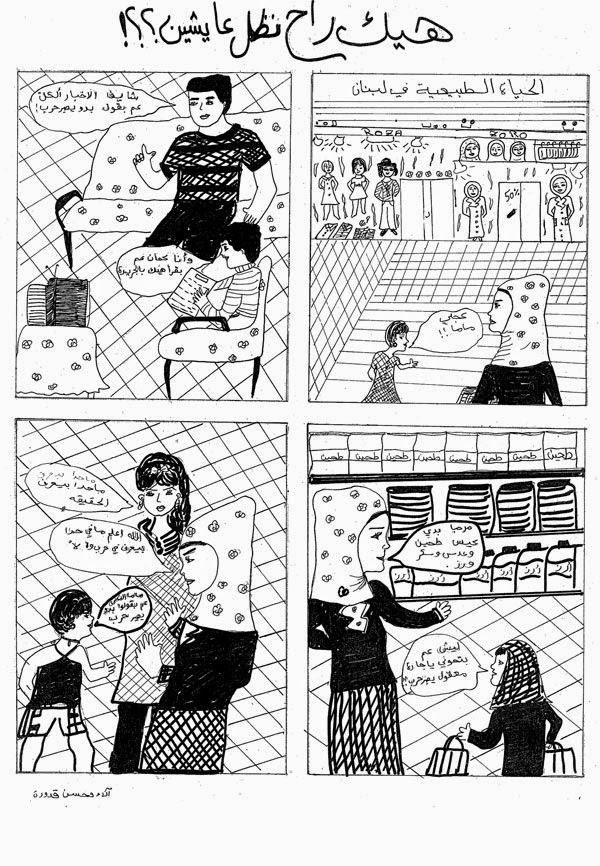|
Ten years ago we arranged together with Finnish Psychologists for Social Responsibility a comics workshop in Barr Elias in the Bekaa Valley, Lebanon. The participants were young Palestinians from ten refugee camps in Lebanon. Beit atfal Assomoud (BAS) was our host organisation.
Psychologist Kirsti Palonen visited Lebanon some time ago, and brought back a batch of recently made grassroots comics from the camps. This shows that our training in 2005 has really borne fruit!
We have had these comics translated from Arabic into Finnish, and then into English. They describe life in a refugee camp, e.g. problems of handling garbage, smoking, use of drugs, domestic violence, and rights to own property.
Below three samples of new comics:
(Note: read from right to left!)
 |
| Normal life in Lebanon |
Summary: A woman is shopping with her daughter. At home, her son asks father if there will be war, as said in the news. Mother tells her daughter that they should buy flour instead of sugar. ”What do you do with sugar if you have no bread”? - At home her son asks her if she knows whether there will be war. She replies: ”Neither you nor me or anybody else can know – only God knows”.
 |
| A spider's web |
Summary: In the absence of a functioning utility company, the electric lines have been drawn in a haphazard way in the refugee camps. People get severe electric shocks on the roofs and on the roads. In the last panel the artist exclaims that a candle would be better.
 |
| Bad smell |
Garbage is dumped everywhere. The smell finds its way into Ahmed's room. He decides to ask his neighbours not to throw their garbage there. They agree, and Ahmed is not disturbed by bad smell anymore.
(posted by Leif Packalen)
Many thanks to Amirouche Boudjemá for translation help.
|





